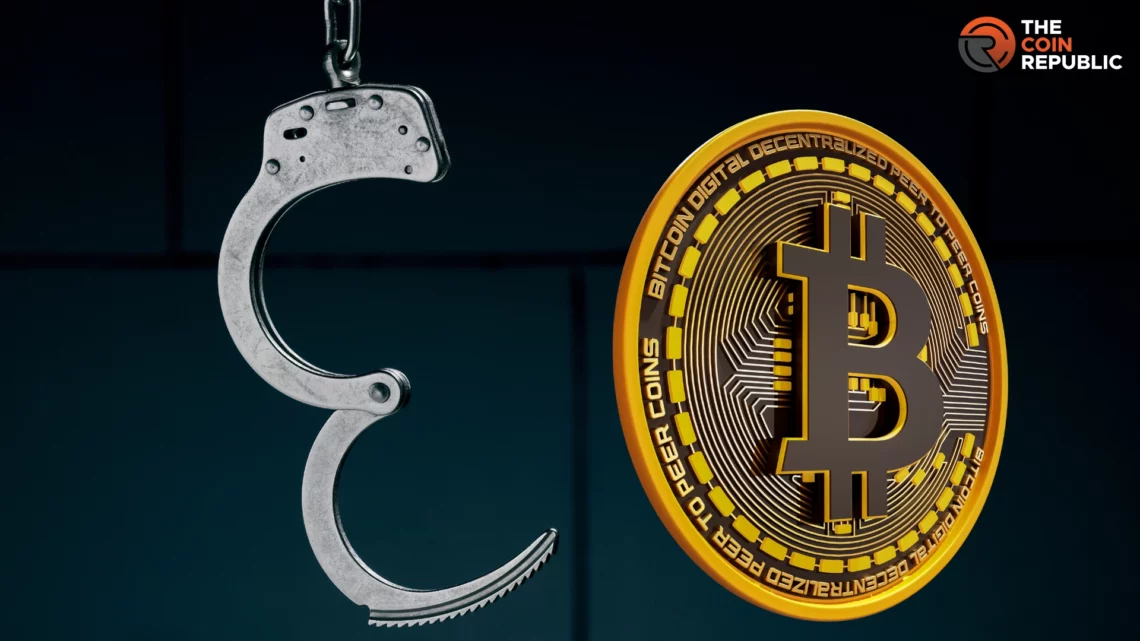In a recent Senate hearing, Deputy Treasury Secretary Adewale Adeyemo discussed the need for more vital rules to stop criminals from using cryptocurrencies for evil purposes.
Adeyemo’s comments follow proposals made by the Treasury Department in November. They show how urgent it is to deal with the risks of digital money to keep our country safe and our financial system secure.
Proposed Reforms For Tighter Crypto Crime Control
During his testimony, Adeyemo outlined three key reforms that the Treasury Department is seeking to enhance its enforcement efforts against illicit finance, terrorism, and sanctions evasion involving cryptocurrencies:
- Introducing Secondary Sanctions: The first proposed reform involves the introduction of secondary sanctions targeting “foreign digital asset providers” engaged in illicit finance.
Adeyemo pointed out that while U.S. sanctions prohibit institutions from using U.S. correspondent accounts and transaction processing through banks, crypto exchanges and money services do not always rely on such accounts.
Therefore, a new secondary sanctions tool is necessary to extend the Treasury’s authorities extraterritorially when digital asset entities threaten national security while exploiting the U.S. financial system.
- Increasing Current Authority: One suggested change entails giving existing authorities more authority to oversee the digital asset market efficiently. This attempts to provide the Treasury Department with the instruments required to address the unique difficulties brought forth by cryptocurrencies.
- Handling Offshore Jurisdictional Hazards: The hazards connected to offshore Bitcoin platforms are the subject of another reform. Deputy Treasury Secretary Adeyemo underscored the significance of Congressional action in furnishing the Treasury Department with the requisite resources to tackle this matter adequately.
Overlap With Proposed Legislation
Adeyemo noted the apparent overlap between the Treasury Department’s proposals and the bills discussed within the Senate Banking Committee. In particular, he referred to the Digital Asset Anti-Money Laundering Act of 2022, reintroduced by committee member Elizabeth Warren and chair Sherrod Brown, both known for their skeptical stance on cryptocurrencies.
The Need For Enhanced Enforcement Powers
To underscore the necessity of enhanced enforcement powers, Adeyemo cited examples of cryptocurrency use by terrorist groups, North Korea, and the fentanyl trade.
While acknowledging that terrorists still prefer traditional financial products and services, he cautioned that without Congressional action to provide the necessary tools, the use of virtual assets by these malicious actors is likely to grow.
Support & Reactions From Committee Members
The testimony garnered support from Banking Committee chair Sherrod Brown, who released a statement backing the Treasury Department’s enforcement goals before Adeyemo’s appearance.
On the other hand, ranking member Tim Scott commended the Treasury Department’s efforts but primarily focused on foreign policy issues that he believes pose a threat to U.S. security.
Conclusion
As Deputy Treasury Secretary Adewale Adeyemo explains to the Senate Banking Committee, this matter demands a closer examination of the unauthorized use of digital currencies for sly dealings ranging from financial crimes to terrorism and sanctions evasion.
Redesigning the existing regulations, introducing targeted measures for imposing secondary sanctions against the countries promoting the projects above, expanding the authorities, and evaluating the risks from offshore platforms are required.
This will show the Treasury Department’s commitment to national security and financial integrity in the context of the digital assets boom.
Since the growing usage of cryptocurrencies is associated with increased crime, close cooperation between lawmakers and regulators is needed as they work simultaneously to combat the criminal nature of digital assets.
Including suggestions from the Treasury Department deputy in alignment with Senate bills indicates that collaborative efforts are available to deal with these challenges.
As the regulatory debates go on, Adeyemo’s delivery just emphasizes the need to find a balance that allows the system as a whole to move forward while standing on firm ground.
While the U.S. government explores this space, it must consider the increasingly important issues of cautious supervision, national security, and the interests of law-abiding citizens.

With a background in journalism, Ritika Sharma has worked with many reputed media firms focusing on general news such as politics and crime. She joined The Coin Republic as a reporter for crypto, and found a great passion for cryptocurrency, Web3, NFTs and other digital assets. She spends a lot of time researching and delving deeper into these concepts around the clock, and is a strong advocate for women in STEM.


 Home
Home News
News






